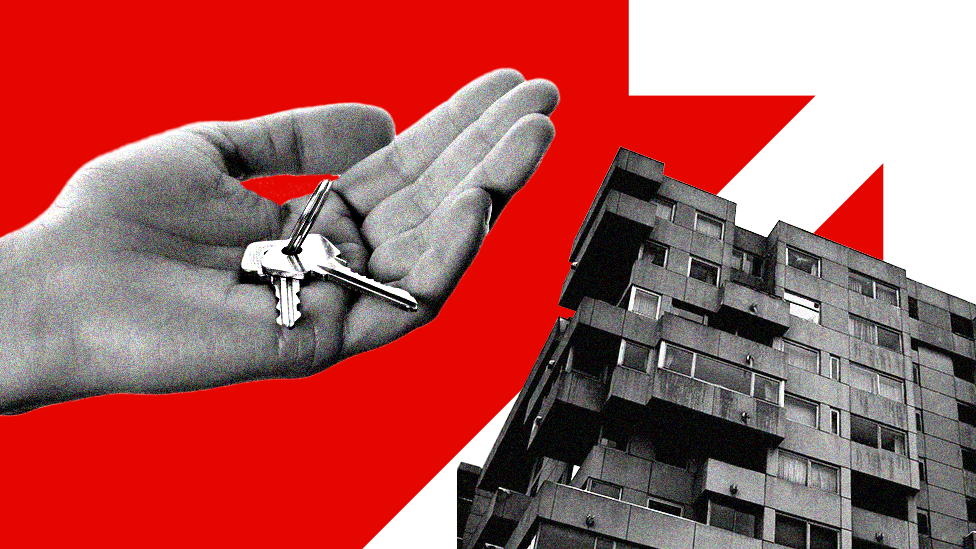ARTICLE AD BOX

Rents are rising at their fastest rate since records began in 2016.
But with a quarter of tenants struggling to pay, what are your rights?
How much can my landlord increase my rent?
Most tenants have a rental agreement called an assured shorthold tenancy.
Some of these are rolling - which means tenants pay rent weekly or monthly, with no fixed end date.
In England, the landlord:
- can usually only put up the rent once a year
- must give at least one month's notice
Any rent rise must be fair and realistic, in line with local properties.
Other renters have a fixed agreement, which typically runs for six or 12 months.
- normally can't put the rent up until the fixed term ends - unless the contract has a rent review clause
- must give at least one month's notice
If the fixed term is a year, landlords must give six months' notice.
There are some other tenancy agreements with different rules.
Housing law and renting rules are different in Scotland, Wales and Northern Ireland.
What can you do about rent increases? Watch the BBC's Lora Jones tell you, in a minute.
What is a holding deposit and how much will it be?
In England a holding deposit is paid to a landlord to reserve a property.
It can't be more than one week's rent.
You should get the money back within seven days of signing your tenancy agreement - or it can go towards your rent.
But if you decide not to move in, you could lose it.
If the landlord doesn't give it back, and you think they should, write to them.
If you still don't get a refund, contact one of the letting agents redress schemes.
You can also complain in England to Trading Standards through the Citizen's Advice consumer helpline.
Such deposits are not legal in Scotland, and rules are different in Wales and Northern Ireland.
Can my landlord evict me?
Landlords need to follow strict rules if they want a tenant to leave - if not, the eviction could be illegal, or the landlord could be guilty of harassment.
In England the landlord has to give written notice to the tenant, which could be:
- a "section 8" notice if they have a reason for wanting you to leave, such as late rent payments
Other tenancy contracts have different rules.
Once the notice period ends, the landlord can start eviction proceedings through court.
Landlords can apply for a so-called "possession order". If that is granted and you don't leave, landlords can apply for a "warrant for possession".
What condition do rental properties have to be in?
Landlords are not expected to do small jobs like changing light bulbs.
If so, you can complain to your landlord, or - if that doesn't work - your local council.
Your landlord may try to evict you rather than make repairs, but you might have more protection if you've already complained to the council.
Tenants need to pay rent on time, cover the bills they are responsible for, and look after the property. This includes disposing of rubbish, and keeping the property reasonably clean.
Can my landlord refuse to rent to me if I have pets or children?
It could be discrimination under equality law in England if a landlord refuses to rent a property to a woman because she has children.
Before you complain, you need to be able to show you can afford the rent, and that the property is a suitable size, Shelter says.
Image source, Getty Images
Image caption,The government's new model tenancy agreement assumes pets are allowed - unless landlords object with good reason
Landlords should not issue blanket bans on pets, and must give a good reason to refuse them - for example, the property is too small.
However, they can charge a higher rent to cover the risk of pet damage.
Are bills included when I rent?
Landlords can choose to include bills such as council tax, but don't have to.
If a landlord includes utility bills, they cannot charge more than they are paying.

 2 years ago
56
2 years ago
56








 English (US) ·
English (US) ·